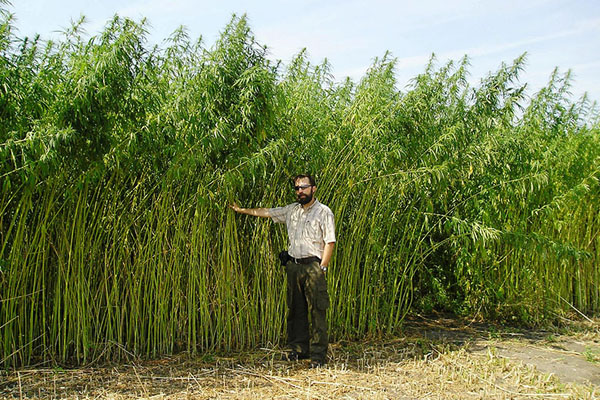New Suggestions On Picking Hemp Clothing
Wiki Article
What Are The Benefits That Low Impact Fibres Hemp Clothing Has For The Environment.
Hemp clothing that is low impact is more environmentally friendly than clothes made of synthetic fibers. Hemp clothing provides several key environmental advantages. It is extremely fast growing and requires less water and pesticides. Hemp thrives in all climates and is adaptable to different soil types, which reduces the need for agricultural chemicals.
Reduced Water Usage- Hemp generally requires less water than cotton, which is renowned for its heavy water consumption. This makes hemp clothing an efficient choice in terms of water consumption.
Hemp can be cultivated without synthetic pesticides, herbicides or other chemicals. This helps reduce the negative environmental impact of chemical agriculture.
Hemp can aid in improving soil health because of its deep roots, which prevent erosion and compaction. Hemp cultivation also improves soil fertility for future crops.
Hemp can be biodegraded. It degrades naturally over time, and it reduces the amount of textile waste. Contrary to synthetic fibers, such as polyester that can require thousands, or even hundreds of years to degrade.
Lower Carbon Footprint Hemp fibers are made with a lower carbon foot print that synthetic materials. Hemp can also act as an absorber of carbon dioxide by absorbing carbon dioxide from the air during the process of growing.
Hemp clothes are known for being durable and long lasting. The best hemp clothing will last for many years, which reduces the requirement to replace them frequently.
Hemp plants naturally repel numerous bugs. They don't need chemical pest control.
Hemp has a wide range of uses in textiles like clothing, accessories, bags, and more. It is an eco-friendly and versatile choice for textiles and fashion.
Regenerative Agriculture - Certain sustainable farming practices can be found in hemp in regenerative agricultural systems that seek to improve ecosystems and enhance them while producing crops. This can have a positive impact on the ecosystem.
Although hemp is a great source of environmental benefits, its overall sustainability is also affected by other aspects, such as the transport, dyeing process and the behavior of consumers. Similar to any other business, there will be different methods of production and guidelines. So, it's important to search for hemp-certified clothing or organic clothing. This will give you the highest environmental benefits. See the top rated hemp clothes for more examples including hemp jeans, hemp dress, patagonia hemp shorts, jungmaven sweatshirt, hemp yoga pants, hemp trousers, women's all seasons hemp canvas bomber hoody jacket, patagonia iron forge pants, hemp tees, hemp boxer shorts and more.

What Are The Advantages Of Hemp Fibers With Regard To Carbon Sequestration?
Hemp fibers are a sustainable choice for both agricultural and textile production. They are a great option for carbon sequestration and sustainability.
Hemp develops rapidly, and can be matured in 70-120 days depending on its variety and growing conditions. In order to speed up their growth hemp plants absorb carbon dioxide from the atmosphere as part of photosynthesis. This carbon uptake is able to dramatically lower CO2 levels through the sequestration of it.
Biomass Production- Hemp is known for its high biomass production. The dense foliage and tall stalks of hemp yield huge quantities of organic matter. When the biomass is integrated into soil or utilized in various applications, this could lead to the growth of organic matter and carbon.
Sustainability:
Hemp needs less synthetic pesticides, herbicides and herbicides than other crops, such as cotton. Its natural resistance decreases its requirement for chemical intervention. The organic hemp industry particularly, emphasizes sustainability by avoiding synthetic chemicals.
Hemp is a water-efficient crop and is able to grow without much irrigation. This makes it a better crop in areas that have limited water resources. This helps it to last longer in areas that are deprived of water resources.
Soil Health- Hemp's extensive root system is able to improve the health of soil. His roots can help prevent soil erosion by stabilizing soil structure and reducing runoff. Hemp cultivation also increases soil fertility by increasing microbial soil activity.
Hemp can easily be integrated into rotation systems. Crop rotation refers to the process of switching between various crops in a single field. This practice can break the cycle of disease and pests, reduce soil depletion and improve soil structure. Hemp’s role in crop rotating contributes towards sustainability.
Crop Rotation
Hemp plants can be rotated with other crops like grains, legumes and vegetables. This can help farmers to maintain the quality of their soil as well as reduce the risk of pests, diseases and other crop-specific problems, and promote a balanced process of nutrition.
The deep roots of hemp can penetrate the soil and aerate it, reducing compaction, while increasing water infiltration. The soil structure improves after a hemp harvest, which benefits other crops.
In summary hemp fibers can enhance carbon sequestration sustainable, crop rotation and efficiency of water through their rapid growing, biomass production and minimal chemical requirements. Hemp farming is a sustainable agricultural practice. The fibers that are produced are sustainable and can be used for textiles, among many other applications. Have a look at the most popular do you agree about hemp clothing for more tips including hemp bathing suit, women's all seasons hemp canvas bomber hoody jacket, patagonia hemp vest, hemp underwear, hemp shorts, hemp clothing wholesale, hemp athletic wear, hemp clothing wholesale, womens hemp clothing, hemp fabric and more.

Bamboo Clothing Is Environmentally Friendly And Incredibly Comfortable.
Bamboo clothing offers many advantages in terms of comfort for the wearer as well as the environment in which they live.
Softness Bamboo fabric is well recognized for its extraordinary softness. It has a silky, smooth texture that feels comfortable against your skin. Bamboo clothing is luxuriously soft and popular for activewear, loungewear, intimate apparel, and other kinds of clothing.
Bamboo fibers are known for their capacity to absorb moisture and they are breathable. Air can circulate through the gaps which keep you cool in the hottest temperatures. Moisture wicking assists in drawing sweat off the skin.
Bamboo clothing has great properties for thermoregulation. Bamboo clothing helps keep you warm in cooler temperatures by capturing warm air close to your body. It can also help you to keep cool in hot temperatures because it lets excessive heat and moisture to escape. The capacity to adjust to temperature variations is what makes bamboo clothing perfect to wear throughout the year.
Hypoallergenic Bamboo is hypoallergenic due to nature and is gentle to sensitive skin. It is less likely to trigger irritation or allergic reactions. This makes it a suitable option for those with skin sensitivities or allergies.
Odor Resistant Bamboo fibers possess natural antimicrobial properties that can help inhibit the growth of bacteria that cause odor. Bamboo clothing retains its freshness even when physically active.
Environment-
Sustainability- bamboo is a resource that's highly renewable and ecologically sustainable. Bamboo is the fastest growing plant in the world. It requires a minimum amount of water to grow and requires no pesticides. Bamboo can be harvested and not kill the plant as it grows from its root system.
Bamboo is water efficient by nature. It can thrive on minimal irrigation. The rainwater supply is usually sufficient to allow it to grow.
Biodegradability. Bamboo clothing will naturally decompose as time passes if it is disposed. This reduces the amount of non-biodegradable textile waste in landfills.
Carbon Sequestration Bamboo plants are able to absorb carbon dioxide (CO2) during rapid growth. As a result, bamboo cultivation could act as carbon sinks, assisting to slow climate changes through reducing greenhouse gas levels.
Chemical Reduction. Bamboo fabric production typically requires lesser chemical treatment and processing than other textiles. As a result, the industry of textiles has smaller environmental footprint.
Closed-Loop Production- Some bamboo fabric production processes utilize closed-loop systems, which recycle and reuse water as well as chemicals, minimizing waste and pollution.
You should be aware that the environmental impact on bamboo clothing will vary depending on whether it is produced using sustainable and responsibly managed bamboo forests. For the best environmental results buyers should opt for bamboo clothes made using eco-friendly and ethical practices. Check out the best more help on bamboo clothing for more examples including faceplant pajamas, bamboo womens shirts, bamboo clothing, bamboo bed clothes, bamboo boxer shorts for men, t shirts bamboo, bamboo pants mens, bamboo cotton pajamas, bamboo dress socks, boody clothing and more.
